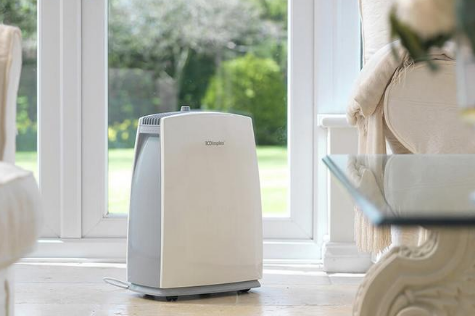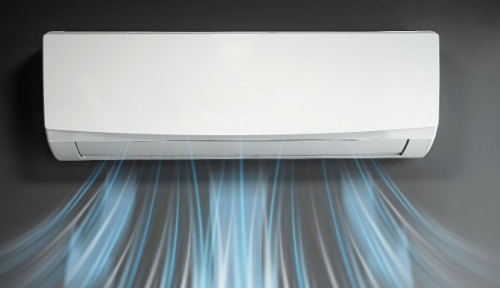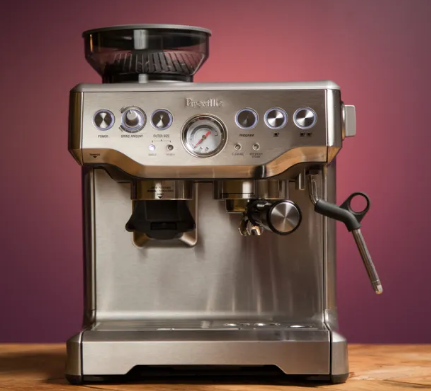Have you ever questioned why your air conditioner doesn’t adequately cool and dry out your house? There are many of them.
As a benefit of air conditioning, indoor humidity control is achieved. The entire home cannot be effectively or efficiently dehumidified by air conditioners for a number of reasons. An illustration would be dirty evaporator coils, negative pressure, and leaky ductwork. Let’s examine why an air conditioner can’t completely replace a dehumidifier system in more detail.
Table of Contents
Do Air Conditioners Dehumidify?
Actually Reducing Humidity is Not What Air Conditioners Do. While air conditioning units assist in reducing indoor humidity, dehumidification is merely a byproduct of cooling. To lower indoor humidity levels, air conditioners are not intended. Additionally, there are a number of system variables that influence whether or not the air conditioner in your house will contribute to moisture control.
Additionally, a lot of system variables determine whether or not the air conditioner in your house will contribute to moisture control.
The AC Unit Has One Speed
What does “one speed” actually mean? Your air conditioner only has one speed if you want it to turn on and blast cold air until the temperature you want is reached. It is unlikely that the device removes humidity because of the inconsistent nature of this process. It simply doesn’t run long enough to accomplish this.
The AC Unit is Too Large
No, a unit that is too large will not be as effective at removing heat or moisture as one that is the right size. We’re not referring to the actual size of the unit here; rather, we’re talking about an excessive cooling capacity. The ability of an oversized AC unit to cool and dehumidify your home is compromised by working too hard and quickly for the area. A unit that is too big short-cycles, similar to a unit with one speed. It draws moisture from the air but prevents it from having a chance to evaporate. infusing the humidity it just removed back into the air.
Negative Pressure
Negative pressure is more likely to occur in ventilation systems that are poorly designed. When the air pressure inside is lower than the air pressure outside, negative pressure results. In other words, outside air is encroaching inside. This makes it challenging for your air conditioner to reduce the heat and humidity in your house. When the weather is humid, this is especially true.
Incorrect Thermostat Setting
If your home is struggling to regulate humidity indoors, it may be because the thermostat is set to “on,” not “auto.” There’s a good reason to choose “auto” instead. When your thermostat is set to “on,” the internal fan is constantly running, even when the air conditioner is not. The removed moisture is blown back into your house by the wind. However, when your thermostat is set to “auto” the fan and Only turn on the air conditioner when you need to cool your house. Only houses without integrated indoor air quality solutions should use this advice!
The AC Unit is Old
Your air conditioner no longer performs as well as it once did as it gets older. If your appliance is not kept up with, this process might be accelerated. Your home might feel more humid than usual when your unit begins to fail. Due to its deterioration, it hardly ever manages to cool your house.
Leaky Ductwork
Did you know that ductwork leaks cause about 20 to 30 percent of conditioned air to be lost? Indoor humidity can rise when ducts leak. The extra water vapor cannot be explained by your air conditioner.
Dirty Coils
Poor dehumidification is one of the HVAC problems that dirty evaporator coils cause. In order for the refrigerant to absorb heat from the air, an evaporator coil cools it. Moisture from the air is also taken out by the coil. It cannot, however, absorb water vapor when the coil is covered in dirt and debris. Your home’s ability to cool and remove humidity is hampered as a result.
Refrigerant Leakage
Chemicals called refrigerants are used to cool and humidify enclosed spaces. Your air conditioner is unable to cool and dehumidify the air if the refrigerant transport pipes spring a leak.
Dehumidification is a Byproduct
Recall that dehumidification is a byproduct of the main function of air conditioners, which is why they are unable to reduce humidity effectively and efficiently. And what is the main job of AC? To cool your home!
Whole-home Dehumidifiers Are Often the Best Choice

Although a dehumidifier will cost you money, it is an investment. Without a significant rise in your monthly expenses for many years, you’ll feel more at ease. When warm, humid air is blown over a dehumidifier, it acts similarly to an air conditioner in that condensation is collected. As opposed to a central air conditioner, it won’t consume as much energy.
Your whole-home dehumidifier will need to be installed by a professional, though. An HVAC expert can ensure that it is installed correctly and that it complements the air conditioner rather than competes with it to keep you comfortable.
Do Dehumidifiers Cool a Room?
No. Dehumidifiers technically add heat to a room, though they may help you feel cooler. Similar to how an air conditioner operates, a dehumidifier creates cold air that is then forced over the evaporator coils, allowing condensation to form and be collected. A portable dehumidifier typically stores water in a removable tank that must be emptied as needed every few days, unlike a whole-house model that may have a dedicated drainage system.
The main distinction is that a split system air conditioner directs all the extra heat outside to be released into the already warm outdoor air. Since a dehumidifier won’t bother, the extra heat generated by the condenser system is simply released back into space. In fact, this may result in a slight increase in the temperature inside, especially if the dehumidifier is running nonstop on a humid day.
On the other hand, you’ll experience a general cooling effect in your home if the humidity is lower. This is due to the fact that dry air makes your body’s natural cooling system—perspiration—work more effectively. The higher humidity makes it harder for sweat to quickly evaporate off your skin, which is why humid summers frequently feel so miserable. Due to the fact that the evaporation process is what cools you down, you end up feeling sticky and still quite warm. Even in hot weather, if the air in your home is dryer, you’ll feel better because your body can cool itself naturally. In places like Florida and the rest of the East Coast, using a dehumidifier and a ceiling fan may actually help you deal with higher humidity when it’s not actually that hot outside.
Is It More Energy Efficient to Use a Dehumidifier Than A/C?
Assuming you run an air conditioner for the same amount of time each day that you run a dehumidifier, your energy bills are unlikely to show much of a difference between the two systems since they both use a compressor and function essentially in the same way. However, you must ultimately decide which is more uncomfortable for you: high temperatures or excessive humidity. Remember that only people who live in humid climates should ask this question. A dehumidifier won’t do much for someone who lives in the desert because their air is already dry. An evaporative cooler, which cools the air by adding water vapor rather than attempting to remove it, is your best option if you want to save money on energy. Water will quickly evaporate and reduce the temperature of the air around it in a dry environment with very little humidity. Evaporative coolers use much less electricity and are much more affordable to operate because they don’t have a compressor system.
Wrap-up: Don’t Give Up Your AC Unit Yet
Please understand that we are not disparaging air conditioners. Every central HVAC system must have them. However, if you’re looking to dehumidify your home, air conditioners work best in tandem with a dedicated dehumidifier solution. A helping dry hand is offered by one device while dehumidification is the only focus of the other. The best of both worlds is here!
FAQs
Can I Use My Air Conditioner as a Dehumidifier?
In place of a dehumidifier, an air conditioner, aka a spot cooler, can be used for controlling humidity, and the same goes for Modern HVAC systems that use evaporator coils, which cause moisture to condense and leave the air.
Do You Need a Dehumidifier If You Have An Air Conditioner?
There are only cold coils in an air conditioner. The air that is returned to the room is much cooler, but the vapor still condenses. You never need actually need to run an air conditioner and a dehumidifier at the same time.
How Long Does AC Take to Dehumidify?
More water condenses out and is carried away as more air passes over the coil. It takes about 15 minutes of runtime before you start getting serious dehumidification of the air, so oversized systems will not dehumidify well.



MOST COMMENTED
How to
How to Clean Homedics Humidifier: Detailed Guide
How to
Are Humidifiers Good for Pneumonia? Complete Guide
How to
Can You Put Drano in a Dishwasher? (Facts & Safe Alternative)
How to
How to Turn Subtitles on Or Off on Peacock TV: 2023 Guide
How to
How to Get Rid of Hollow Arrow on iPhone? 2 Simple Ways
How to
How to Mirror iPhone to TV Without WiFi: Complete Guide
Computers, Tablets & Printers
The 5 Best Printers for Cricut in 2022